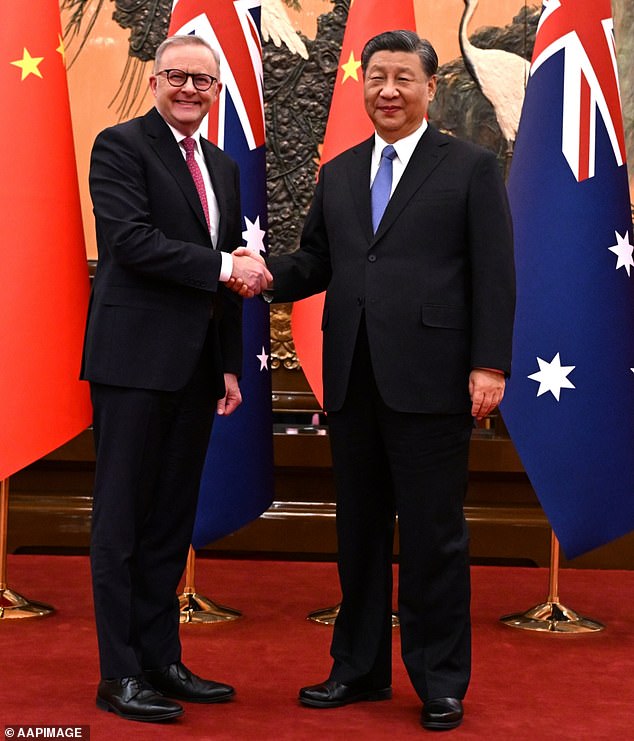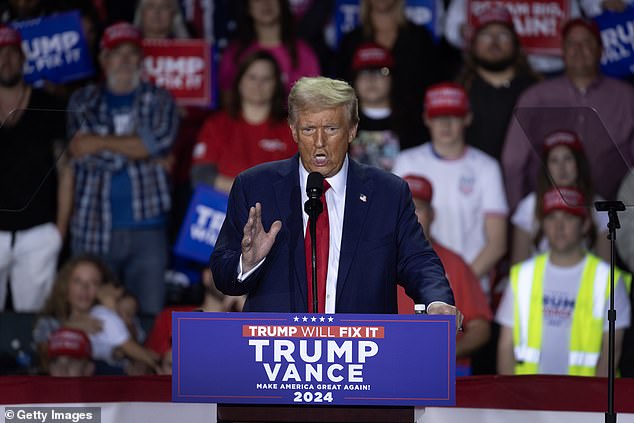Anthony Albanese is fast becoming the ham in the proverbial sandwich as China and the United States duke it out, now that Donald Trump is set to return as US President in January.
While Trump aides are happy to throw sand in the PM’s eyes, scolding his loyalty to Trump critic and Australian Ambassador to the US Kevin Rudd, China’s state controlled newspaper has chosen a very different path. It has praised our PM.
The China Daily ran an editorial last week saying that other western leaders should emulate Albo, describing him glowingly as ‘waking up’ to the importance of China economically, and as having shown ‘strategic autonomy’ by not becoming a mini-me supporter of the US.
It’s not necessarily the sort of support Albo wants ahead of a potentially tight election campaign.
China remains a totalitarian regime that shuns democratic principles. Which is one of many reasons why the AUKUS submarine deal with the United States has been hailed as a masterstroke by both major parties.
Only the Greens are calling for the deal to be scuttled, having doubled down on that sentiment since Trump’s successful re-election.
While the state controlled Chinese newspaper is in thrall of Albo, it has been highly critical of past Aussie PMs, including Scott Morrison, who was scolded for his close relationship with Trump during the returning President’s first term.
Today Albo will meet with Chinese President Xi at the G20 Summit in Rio de Janeiro. All eyes will be on just how cozy the pair are and what the PM and President have to say about their meeting.


Meanwhile Trump has pledged to impose huge tariffs on China and other nations, which could be disastrous for a trading nation like Australia.
Albo discussed the importance of trade in a recent telephone conversation with the incoming US President, but did not explicitly request Australia be exempted from any shift towards greater protectionism under a Trump administration.
He has been criticised for the omission.
The danger for Albo, and by extension the Labor government and Australia, is that if Team Trump start to regard the PM as too close to China, it might weaken our diplomatic standing with the US. In turn weakening our capacity to seek exemptions from incoming tariffs.
However, any attempt to parlay that concern by drawing closer to the US could provoke a reaction from China. We know from experience that China can be quick to retaliate with trade sanctions of its own.
There is no denying that Australia needs to delicately manage its relationship with both superpowers in the coming years and decades.
One is our key strategic ally, the other has emerged as our number one trading partner. China is also seeking to become more militarily dominant in our region, while the US remains our second biggest trading partner notwithstanding our military alliance.
Ever since Gough Whitlam opened relations with the Communist leadership of China in the 1970s, Australia has attempted to balance that emerging relationship with our historical ties to the US.
However the rise and rise of China into the 21st Century has made doing so ever more difficult, as Australian economic dependence on exports to China have locked in national prosperity.
Albo is now right in the middle of what is an increasingly tense balancing act. One that is likely to become more tense with Trump’s return.

